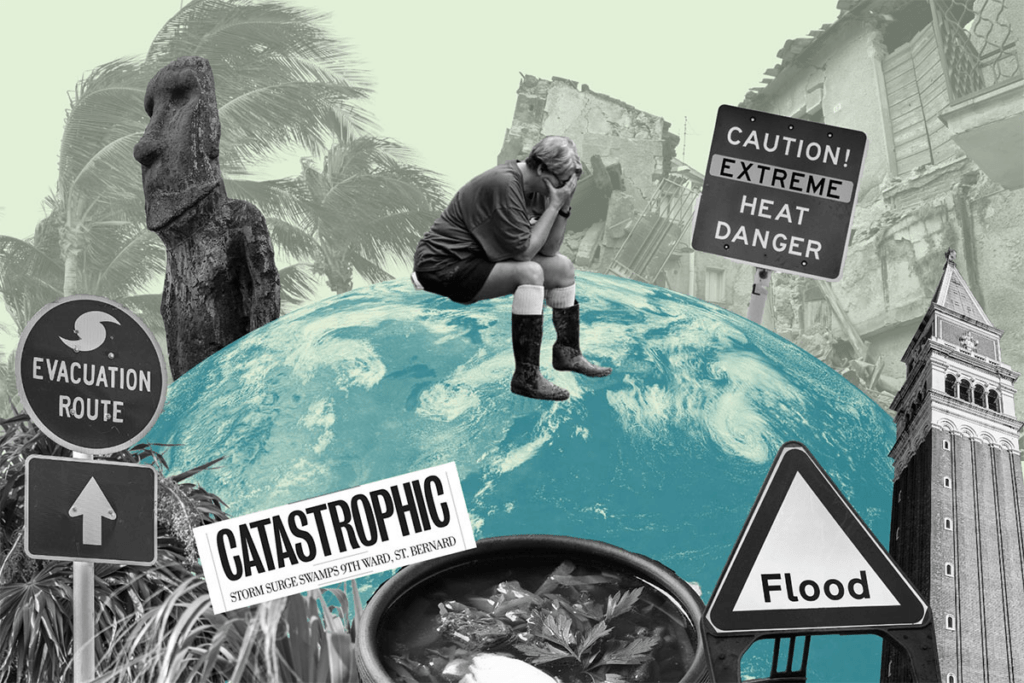In today’s interconnected world, global challenges are increasingly intertwined with ecological concerns. From health crises to urban development, the environmental impact of human activities continues to shape our response to pressing issues. This update explores recent news events through an ecological lens, highlighting the complex relationships between human societies and the natural world.

1. Middle East Crisis: Environmental Health Concerns Amidst Conflict
The United Nations’ warning about the potential failure of polio vaccination programs in Gaza underscores not only a humanitarian crisis but also an ecological health emergency. The spread of diseases like polio can have far-reaching consequences on local ecosystems, potentially affecting wildlife populations and biodiversity. Moreover, the destruction of infrastructure during conflicts often leads to environmental degradation, including water pollution and habitat loss, exacerbating public health risks [1].

2. UK Immigration and Labor Exploitation: Ecological Justice Perspectives
Charities’ concerns about the UK’s immigration strategy increasing the risk of exploitation highlight significant issues of social and ecological justice. Exploitative labor practices and poor working conditions for migrants often coincide with environmental degradation, as vulnerable workers are frequently employed in industries with lax ecological standards and high environmental impact. These sectors, such as agriculture, construction, and manufacturing, not only exploit labor but also contribute to pollution, resource depletion, and habitat destruction.
This interconnected problem underscores the need for a holistic approach to immigration policy—one that integrates both human rights and environmental protection. Ensuring fair labor practices and safeguarding the rights of workers can prevent exploitation and promote more sustainable and ethical industry practices. Moreover, addressing environmental standards in tandem with labor rights can help mitigate the ecological damage associated with exploitative industries, creating a more equitable and sustainable future for all.
A comprehensive immigration strategy should therefore encompass measures that protect workers from exploitation and enforce stringent environmental regulations. By aligning labor protections with environmental safeguards, policymakers can address the root causes of exploitation while also promoting sustainable practices that benefit both people and the planet. This approach not only upholds the dignity and rights of migrant workers but also contributes to broader environmental and social justice goals, fostering a more inclusive and sustainable society.

3. Four-Day Work Week: Potential Ecological Benefits
The UK’s consideration of a four-day compressed work week could have significant ecological implications, with the potential to positively impact environmental sustainability. One of the most immediate benefits could be a reduction in commuting, leading to lower carbon emissions and less air pollution. Fewer workdays mean fewer trips to the office, which could decrease the overall number of vehicles on the road and reduce the carbon footprint associated with daily travel. This reduction in commuting could contribute to improved air quality and a decrease in greenhouse gas emissions.
However, the ecological impact of this policy change will largely depend on how people utilize their additional free time. If the extra day off leads to increased consumption of resources or travel to far-off destinations, the environmental benefits might be offset. On the other hand, this policy offers a unique opportunity to encourage sustainable practices and promote environmental awareness. For example, individuals could be incentivized to engage in eco-friendly activities, such as local volunteering, outdoor recreation, or community-based environmental projects.
Promoting sustainable leisure activities and environmental education could transform the extra day into a powerful tool for fostering a culture of environmental responsibility. Employers and policymakers could leverage this shift by supporting green initiatives, encouraging public transport or cycling, and integrating environmental education into community programs. By aligning this policy with sustainability goals, the UK could not only reduce the ecological impact of work-related activities but also contribute to broader efforts to enhance environmental stewardship and create a more sustainable lifestyle for its citizens.

4. Climate Leadership and Public Perception
The discussion around Elon Musk’s environmental legacy in the context of the 2024 US election reflects the complex relationship between technology, climate solutions, and public perception. As the world grapples with climate change, the role of high-profile figures in shaping environmental narratives becomes increasingly crucial. This highlights the need for transparent and consistent climate leadership [4].

5. Ukraine’s Clean Energy Push: A Model for Ecological Resilience
Ukraine’s accelerating clean energy strategy demonstrates how countries can combine environmental goals with national security objectives. This approach not only reduces carbon emissions but also enhances ecosystem resilience by decreasing reliance on extractive fossil fuel industries. Ukraine’s efforts could serve as a model for other nations seeking to build ecological and energy security [5].

6. Climate Change and Coastal Real Estate: Ecosystem Adaptation
The trend of fewer Danes buying coastal properties due to climate risks reflects a growing awareness of ecosystem vulnerabilities. This shift in housing preferences could lead to reduced development pressure on sensitive coastal ecosystems, potentially allowing for natural coastal defense mechanisms to recover. It also highlights the need for adaptive urban planning that respects ecological boundaries [6].

7. Urban Ecology Innovation: Moss Walls and Biodiversity
The exploration of moss walls as a means of greening cities represents an innovative approach to urban ecology. These living walls can increase urban biodiversity, improve air quality, and help regulate urban microclimates. By integrating nature into built environments, cities can enhance ecosystem services and human well-being while potentially mitigating urban heat island effects [7].

8. Climate Change and Cultural Heritage: Preserving Ecological and Cultural Diversity
The threat to U.S. cultural landmarks from climate change highlights the intricate connections between cultural and ecological heritage. Many historical sites are integral parts of their local ecosystems, and their preservation is crucial for maintaining both cultural and biological diversity. This situation calls for interdisciplinary approaches to conservation that consider both cultural and ecological values [8].
Conclusion
As we navigate these complex global challenges, it’s clear that ecological considerations must be at the forefront of our decision-making processes. From public health initiatives to urban development and energy policies, our actions have far-reaching consequences for both human societies and the natural world. By adopting an ecological perspective, we can work towards more holistic and sustainable solutions to the pressing issues of our time.
References
- [1] United Nations News: https://news.un.org/en/ (You can search for recent articles on Middle East and health issues here)
- [2] UK Charities on Immigration: https://www.refugeecouncil.org.uk/latest/news/ (This provides updates on UK immigration policies and their impacts)
- [3] UK Government Work and Employment: https://www.gov.uk/government/topics/employment (Official source for UK work policies)
- [4] Forbes on Climate and Business Leadership: https://www.forbes.com/sustainability/ (Articles on climate change and business leaders’ roles)
- [5] Ukraine Energy Policy: https://www.iea.org/countries/ukraine (International Energy Agency’s page on Ukraine’s energy situation)
- [6] Danish Property Market: https://www.statbank.dk/statbank5a/SelectVarVal/Define.asp?MainTable=EJEN77&PLanguage=1&PXSId=0&wsid=cftree (Statistics Denmark’s data on property sales)
- [7] Urban Forestry & Urban Greening Journal: https://www.sciencedirect.com/journal/urban-forestry-and-urban-greening (Scientific journal covering urban ecology innovations)
- [8] U.S. National Park Service on Climate Change: https://www.nps.gov/subjects/climatechange/index.htm (NPS page on climate change impacts)
Related Content
- Global News Roundup: From Public Health to Climate Challenges
- The Power of Nature: Healthy Foods and a New Synthetic Alkaloid Against Cancer
- Switching Off Inflammatory Protein Leads to Longer, Healthier Lifespans in Mice
- Mastering the Art of Work-Life Balance: Tips for a Healthier Lifestyle
- AI-Predictive Analytics in Healthcare: A New Era of Prevention
- Durian Delights: 7 Unexpected Ways This Fruit Boosts Your Health
